Résultats de la recherche pour : Amin Elias
Revue de presse, 3 septembre
Belgique
"Charles Michel, Jan Jambon et Bart De Wever sont partis à la rencontre de la communauté juive d'Anvers pour parler sécurité" — Sécurité des Juifs : «Des mesures à la hauteur des menaces», selon De Wever (D.V et M.Bn, Le Soir)
"De Joodse gemeenschap in Antwerpen kreeg bezoek van premier Charles Michel (MR) en minister van Binnenlandse Zaken Jan Jambon (N-VA). Het belangrijkste thema: veiligheid" — Michel : 'Nultolerantie voor antisemitisme' (jvt en Belga, De Standaard)
Belgium
Belgium is historically a Catholic country. A few years after the creation of the State in 1830, more than 99 % of its inhabitants identified themselves as Catholic in a survey of the general population. Only a few Protestant and Jewish communities introduced some religious diversity; yet it was enough for the State to grant public subsidies to those communities alongside the powerful Catholic Church. In XIXth century Belgium, the Catholic Church enjoyed wide authority, supported by an expanding network of Catholic schools and the development of a Catholic political party.
France
France is usually thought of as the embodiment of laïcité (secularism). However, the struggle to both reach a generally accepted understanding of it, and to implement it, is ongoing. The immediate past has highlighted tensions due to religious beliefs and practices in French society, whereas recent social and religious evolutions also have an impact on laïcité. Laïcité is nowadays an important topic in French public debate: according to the catalogue of the Bibliothèque nationale de France, in 2014 no less than 11 books contained the word in their title, whereas newspaper Le Monde recently also dedicated a newsletter to it. Another illustration of this reality is the formation, by the government, of a monitoring group on secularity, the Observatoire de la Laïcité, which was created in 2007 by president Jacques Chirac and fully set up in 2013 by president François Hollande and prime minister Jean-Marc Ayrault. The aim of this monitoring group is to advise and assist the government in ensuring respect of the principle of laïcité. In July 2014, the Group issued a short note entitled La laïcité aujourd’hui (Secularism today), recalling the historical roots and meaning of secularism and developing ways of implementing it in contemporary society. This reflects the current struggle to reach a balance between promotion of secularism and respect of religious freedom.
Poland
In Poland, religious freedom is guaranteed by the 1997 Constitution and by international instruments incorporated into Polish law. The country is also party to most European and universal human rights documents. In 2003, the number of Catholics was estimated at 34,443,998 (90.1 % of the entire population), the number of Orthodox Christians at 510,712 (1.34 %) and the number of Protestants at 162,102 (0.42 %). Surveys of the Centre of Public Opinion Research (CBOS) and the Catholic Church Institute of Statistics have shown that 90 % of the Polish population consider themselves a religious person, whereas the latest CBOS survey (2015) reveals that 50 % of the population participates in mass at least once a week (58 % in 2005). The same survey indicates that the proportion of people who do not attend Church services has increased from 9 % in 2005 to 13 % in 2015. Daily prayer is also in steep decline: from 66 % in 2005 to 43 % in 2015.
Portugal
Though the quantity of studies on religious/non-religious tendencies in today's Portugal is not overly abundant outside the Catholic remit, available are official and other reliable statistical data, and a number of well-structured analyses thereof, providing insights into the religious phenomenon in this country. Notwithstanding, the main issue is whether the more recent, few-decades-spanning information is by itself sufficient for supporting medium to long-term tendencies anticipation in this domain. This text takes the view that the Portuguese national historical context may to a good extent explain the degree of observed trend stability as regards religions-secularism in the country. The Portuguese law of religious freedom dates just from 2001. Signs are that only now an effective multiplication of creeds is underway, whose future impact cannot yet be soundly discerned.
Revue de presse, 2 septembre
Vatican
"Dans sa lettre à Mgr Rino Fisichella sur le Jubilé de la miséricorde (8 décembre 2015-20 novembre 2016), le pape François annonce avoir décidé 'nonobstant toute chose contraire, d'accorder à tous les prêtres, pour l'Année jubilaire, la faculté d'absoudre du péché d'avortement tous ceux qui l'ont provoqué et qui, le cœur repenti, en demandent pardon'" — L'avortement pourra être pardonné pendant le Jubilé (Zenit, InfoCatho)
"L'absolution reçue en se confessant aux prêtres de la Fraternité Saint-Pie X sera 'valide' et 'licite' pendant le Jubilé, déclare le pape François dans la lettre qu'il adresse à Mgr Fisichella pour l'année jubilaire de la miséricorde, rapporte l'agence Zenit" — Le geste de François envers les Lefebvristes (A.B. avec Zenit, La Vie)
Religions and Secularism in Portugal: mainly a lingering monotheism
Though the quantity of studies on religious/non-religious tendencies in today's Portugal is not overly abundant outside the Catholic remit, available are official and other reliable statistical data, and a number of well-structured analyses thereof, providing insights into the religious phenomenon in this country. Notwithstanding, the main issue is whether the more recent, few-decades-spanning information is by itself sufficient for supporting medium to long-term tendencies anticipation in this domain. This text takes the view that the Portuguese national historical context may to a good extent explain the degree of observed trend stability as regards religions-secularism in the country. The Portuguese law of religious freedom dates just from 2001. Signs are that only now an effective multiplication of creeds is underway, whose future impact cannot yet be soundly discerned.
Revue de presse, 31 août
Inde
"Diminution de la proportion des hindous, stabilisation de la part des chrétiens et augmentation de la proportion des musulmans dans la société indienne, telles sont les caractéristiques du nouveau visage religieux de l'Inde, d'après les résultats du dernier recensement" — Recensement 2011 : le nouveau visage religieux de l'Inde (Eglises d'Asie)
Sri Lanka
"Premier Ranil Wickremasinghe van Sri Lanka heeft de religieuze leiders in zijn land opgeroepen om bij te dragen tot de nationale verzoening van de 20 miljoen Sri Lankanen" — Premier van Sri Lanka vraagt steun religieuze leiders (Kerknet)
Revue de presse, 25 août
Etat islamique
"Les membres du Conseil de sécurité de l'ONU ont entendu lundi les témoignages horribles des persécutions subies par des homosexuels irakiens et syriens aux mains du groupe Etat islamique (EI), lors de la première réunion jamais consacrée aux droits des gays" — Le groupe Etat islamique «chasse les gays un par un» (L. Co. avec AFP, Le Soir)
"Les membres du Conseil de sécurité de l'ONU ont entendu lundi les témoignages horrifiants des persécutions subies par des gays irakiens et syriens aux mains du groupe Etat Islamique, lors d'une première réunion jamais consacrée aux droits des homosexuels" — Réunion "historique" de l'ONU sur les persécutions de l'EI contre les gays (AFP, Le Vif)
Revue de presse, 24 août
France
"Le tireur du train Thalys Amsterdam-Paris, maîtrisé par des passagers dont des militaires américains, s'était rendu en Syrie et était connu des services de renseignement français et espagnols pour ses liens avec la mouvance islamiste radicale. Il serait également connu des services belges" — Tireur du Thalys : la piste de l'islamisme radical se dessine (Belga, Le Vif)
"La justice a suspendu, vendredi 21 août, le projet du maire Front national de Mantes-la-Ville (Yvelines) d'installer le poste de police municipale sur l'emplacement d'une future mosquée, une décision entachée d' 'un détournement de pouvoir'" — La justice suspend le projet du maire FN de Mantes d'installer la police à la place d'une mosquée (Le Monde)






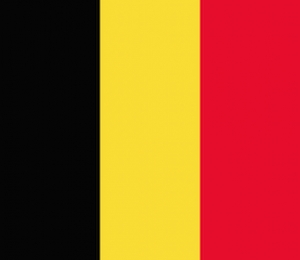

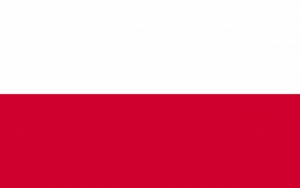
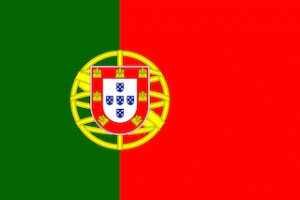
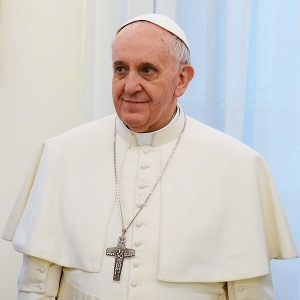
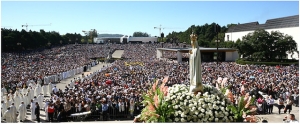
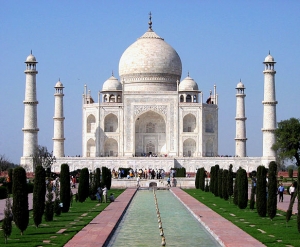


 MangoGem
MangoGem